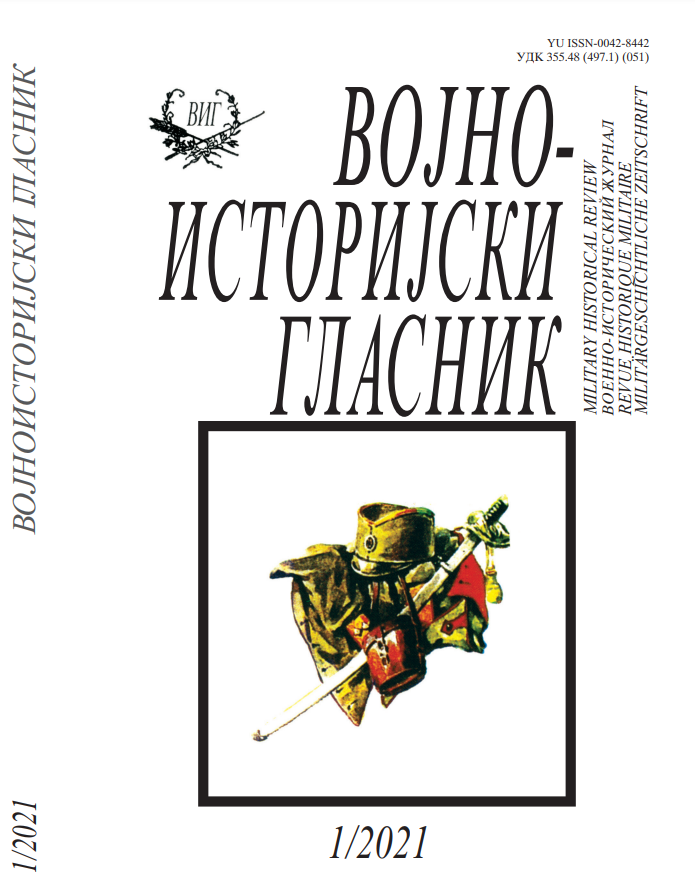СОВЈЕТСКЕ ПРОЦЕНЕ ЈУГОСЛОВЕНСКЕ ОДБРАМБЕНЕ МОЋИ (1935-1936)
SOVIET ESTIMATES OF YUGOSLAV DEFENSE POWER (1935-1936)
Author(s): Aleksandar ŽivotićSubject(s): Military history, Interwar Period (1920 - 1939)
Published by: Institut za strategijska istraživanja
Keywords: Yugoslavia; The Soviet Union; German army; economy; armament; military equipment
Summary/Abstract: After accession the League of Nations, regulating relations with Romania, Czechoslovakia and Bulgaria, and concluding pacts with Czechoslovakia and France, the Soviet Union expressed a special interest in the foreign policy positioning of the Kingdom of Yugoslavia. Although the Soviet side showed interest in establishing diplomatic relations with the Kingdom of Yugoslavia,the Yugoslav government remained reserved. Signals sent by the Yugoslav state leadership said that Yugoslavia would not embark on the path of formal recognition of the USSR, but that it would not take any steps that could be directed against Soviet interests. Fearing possible Yugoslav political and military ties to Germany, the Soviet military intelligence service, in the light of a certain Yugoslav rapprochement with Germany and distance from its former allies - Romania and Czechoslovakia, began permanent monitoring and analysis of Yugoslav defense power, modernization of its armed forces and budget exposures for military use. The Soviet diplomatic and militarydiplomatic network in the Yugoslav environment, a significant part of the Russian emigration to Yugoslavia, an extensive illegal network of Yugoslav communists and numerous "open sources" were at her disposal for the realization of that idea. The internal political factors that, according to Soviet estimates, influenced the country's defense power, Yugoslav foreign policy positioning and various aspects of the German political, economic and military presence in Yugoslavia were thoroughly analyzed. The Soviet military intelligence service estimated that the German economic presence in Yugoslavia had numerous repercussions of a military character and that the strengthening of Yugoslav-German military ties could be expected in the coming period. The Yugoslav army itself was perceived as a quality armed force whose basic shortcomings were weak motorization and the use of a significant amount of infantry weapons from the First World War. It was argued that the Yugoslav army, despite its shortcomings, was the leading armed force in the Balkans.
Journal: Vojnoistorijski glasnik
- Issue Year: 2021
- Issue No: 1
- Page Range: 100-118
- Page Count: 19
- Language: Serbian

